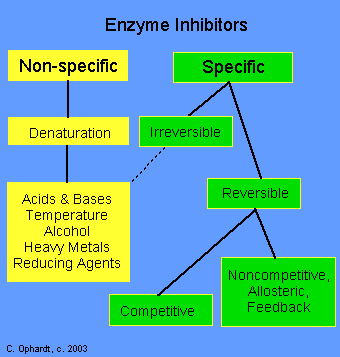What Is an Inhibitor?

An inhibitor is a chemical that binds to a catalytic enzyme and reduces its ability to work. By binding to the active sites of enzymes, inhibitors reduce the compatibility of the enzyme substrate, which, in turn, makes the enzyme work less efficiently. As a result, more substrate must be added or treated to compensate for the reduced enzymatic activity of the inhibitor.
Enzymes are essential for all life processes. They aid digestion, break down food and lipids and other substances. Enzymes help maintain the balance of our body by producing energy. Without enzymes, the body could not survive.
Enzymes are made up of a pair of proteins and nucleic acids and can be found in many forms, including RNA, DNA, and protein. Enzymes then come into play when they meet certain conditions, such as a reaction, and cause a reaction.
The most important function of an enzyme is its ability to produce energy. Without it there would be no source of energy, and without energy it would be impossible to carry out the necessary functions of everyday life. Some examples of energy producing enzymes are adenosine triphosphate (ATP), adenosine monophosphate (AMP), and glycerol phosphate (GP).
All three of these enzymes produce energy by converting one form of adenosine compound into another. These compounds are then used in the production of ATP. ATP molecules combine with a phosphate group to create adenosine diphosphate (ADP). This molecule then joins the phosphorylase enzyme, which is responsible for converting ADP back to ATP.
Without the inhibitor, energy production is significantly reduced.
This means that the amount of ATP produced in the cell is much less than if the inhibitor had not been present
In addition to inhibiting the enzyme from doing its job, inhibitors can also be used in order to boost its effectiveness. Some inhibitors are found naturally in many foods such as soybeans and certain types of grapes. Other inhibitors may be obtained through dietary supplements.
Certain types of inhibitors are known to be more effective than others. They can be found in products such as vitamins, herbs and some foods that are considered to be "complementary" in nature. Others can be purchased as prescription drugs. that will have to be prescribed by a physician.
When an enzyme is inhibited, the enzyme is unable to attach to a protein and this results in a loss of an amino acid. Amino acids are the building blocks of many important biochemical reactions that occur throughout the body. Without them, the functions of these reactions are not completed correctly. Examples of these types of reactions include the manufacture of hormones, antibodies, enzymes, proteins and DNA.
There are some medications that are considered to be inhibitors but have some other types of activity. This type of activity is often called a co-enzyme or co-factor. Inhibitors can be used in conjunction with other medications to achieve greater results. Some examples of these types of medications are:
– This type of inhibitor is often found in the form of a tablet or liquid. The tablet has a mixture of a particular Bifidus treatment (also known as Folic Acid). and the inhibitor. In many cases, this combination can decrease the amount of Folic Acid in the blood stream thus allowing the Bifidus to be eliminated. This pill is also used in combination with a vitamin C tablet in order to decrease the risk of bleeding into the digestive tract.
– Another type of inhibitor is known as an antihistamine and is used in combination with a Vitamin C tablet in order to reduce inflammation. An antihistamine inhibits histamine, which is responsible for allergic reactions in the body. This agent can also be used to treat a variety of allergies including hay fever and hives.
There are many types of antihistamines that are available. They are usually prescribed for individuals with allergies to pollen or histamine.